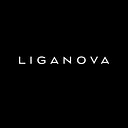What if our current system of addresses is not designed for the digital age?
We chatted with Clare Jones from what3words about democratizing the world of addresses having a knock-on effect across numerous sectors.
Where there are challenges, there are also great opportunities. Innovation in our digital age means reinvention. As CCO of what3words, Clare Jones is all too familiar with this fact. The revolutionary new technology democratizes geolocation by dividing the world into a grid of 3m x 3m squares and assigning each one a unique 3-word address.
Can you tell us the story of how the idea for what3words came about, and what kind of thinking was involved?
what3words was actually invented because Chris Sheldrick, our CEO and co-founder, used to run a music company — and his musicians constantly got lost when going to gigs. Anyone who has ever been to a festival, or a party in a tent in a field in rural Ireland, or a destination wedding in a country where you don’t speak the language, will know the problem well: there is no one, standard system of addresses for the world. Navigating your way around when you travel a lot can be a nightmare — finding that gorgeous Airbnb in the woods, or the street food van in London with the best tacos, or even simply finding the right entrance to a big office building with six ways into it in San Francisco.
Chris knew there had to be a better way — he decided it was time for a global addressing standard. That’s how what3words was born — now every 3m x 3m square in the world has been labeled with an address made of 3 words from the dictionary.
The key thing for us at what3words was thinking differently about something people have taken for granted for so long. Because street addresses have barely changed in the last hundred years, we just kept using them — even though they weren’t designed for mobile phones or mapping apps, and certainly not for voice assistants like Amazon Alexa, or drone delivery, or autonomous cars. With what3words, we had to create something that was designed for the digital age.
How does what3words affect other industries, and what are some examples of knock-on innovation?
what3words basically means you can move people or things much more efficiently from A to B — because you actually know precisely where “B” is. It’s amazing seeing 3 word addresses used to deliver pizzas on time by Domino’s, new Mercedes cars coming with what3words already built in (so you can use voice commands to drive your A-Class to the parking spot at ///watching.atomic.brick) or drones being commanded by Amazon Alexa and what3words.
Seeing what other people do with our technology is always amazing. We have seen NGOs, particularly, use what3words to develop or improve their own innovative projects. Recently, for example, South African NGO Gateway Health started using what3words to help their team reach HIV-positive mothers, reducing mother-to-child transmission and ensuring health workers know exactly where to go.
Are there any places you’re keen to check out while in Berlin?
I always love seeing the street art from the East Side Gallery in Berlin — I’ll definitely be going to ///light.cleans.guitar to check out what’s new. And whenever I’m in Berlin I head to Commonground for my caffeine and WiFi fix because they have brilliant coffee and people who are very forgiving that my German is so terrible — you can find the cafe at ///saves.possibly.dazzling.
***

